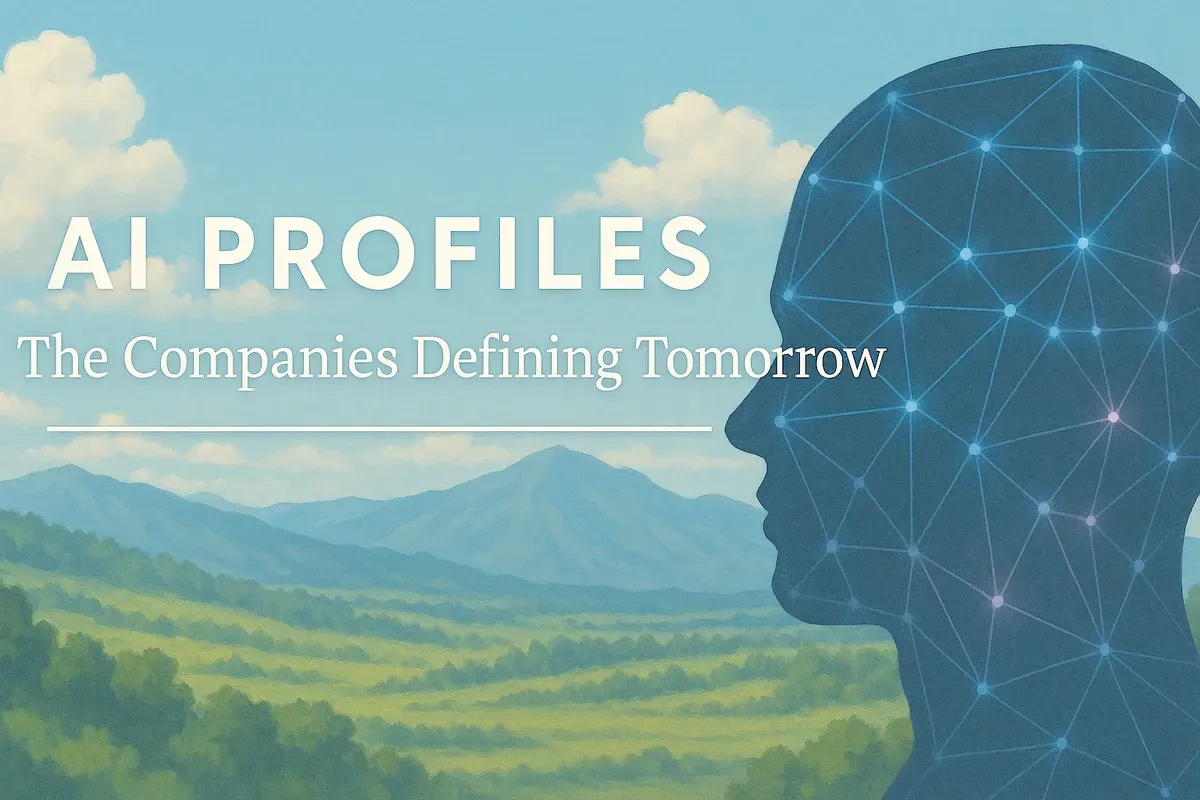Five Replace Fifty. Chips Stay Home.
Good Morning from San Francisco, Coca-Cola swapped fifty crew members for five AI specialists. Production time collapsed from a year

Good Morning from San Francisco,
Saudi Arabia's AI landscape just got more interesting. AMD jumped in with a $10 billion chip deal, matching Nvidia's move from earlier this week. Both tech giants are betting big on the kingdom's mix of oil money, endless energy, and nuclear ambitions. 🚀
Meanwhile, House Republicans snuck a bombshell into the budget bill: a 10-year ban on state AI regulations. This would wipe out over 500 proposed state laws on AI safety overnight. Tech companies love it. Consumer advocates are livid. The Senate might have other ideas. ⚖️
Stay curious,
Marcus Schuler

Saudi Arabia's AI ambitions doubled in scale Tuesday as AMD announced a $10 billion partnership with Humain, just hours after Nvidia's own massive chip deal. The moves position Saudi Arabia to become a major player in global AI infrastructure.
AMD will supply chips and software for data centers stretching from Saudi Arabia to the United States. The deal comes as AMD seeks to challenge Nvidia's dominance in AI chips. Currently, most AI accelerator chips go to a small group of tech giants like Microsoft and Amazon.
The timing is strategic. Trump just scrapped rules that would have restricted these semiconductor deals. At the Saudi-U.S. Investment Forum, Trump noted the absence of some tech leaders. "Tim Cook couldn't make it. He's too busy making phones in China," Trump said, drawing laughs from the crowd.
Saudi Arabia isn't just buying hardware. Humain will build data centers and sustainable power systems, plus global fiber-optic connections. The kingdom plans to power these centers with a mix of nuclear and renewable energy. Saudi Arabia announced plans for 16 nuclear reactors by 2040 - enough power for dozens of AI data centers.
"Our investment is a significant milestone in advancing global AI infrastructure," said AMD CEO Lisa Su. The understated comment masks the deal's scope.
The kingdom's play makes sense. It has three key advantages: endless energy for power-hungry AI systems, plans for nuclear power, and deep pockets from oil wealth. Now it's using all three to reshape the AI landscape.
Saudi laws requiring companies to store data locally add another wrinkle. Tech giants must build local data centers to keep doing business there. The strategy is clear: use market access as leverage to build domestic AI capabilities.
Why this matters:
Read on, my dear:

Prompt:
art manikin standing in a plin room having a brain explosion

House Republicans want to stop states from regulating artificial intelligence. Their new budget bill includes a sweeping provision that would block states from enforcing any AI-related laws for 10 years.
The measure would halt over 500 proposed state laws aimed at protecting the public from AI risks. California's rules on AI-generated performer likenesses, New York's requirements for AI hiring tools, and Colorado's algorithmic discrimination protections would all hit a wall.
The bill defines "automated decision systems" broadly enough to affect everything from search results to mapping directions. It would block states from restricting AI models, setting performance standards, or requiring documentation from AI companies.
OpenAI and other tech companies have lobbied for federal control over AI rules, arguing that state-by-state regulations make compliance difficult. But with minimal federal oversight in place, states have led the charge in addressing AI risks like deepfakes, bias, and privacy concerns.
Democrats blast the provision as a "giant gift" to tech companies. Rep. Jan Schakowsky warns it would let AI firms "ignore consumer privacy protections" and "let deepfakes spread." The bill could face challenges in the Senate, where budget reconciliation rules require provisions to focus on fiscal matters.
Why this matters:
• While Congress debates, states are the only ones actually putting guardrails on AI - this would remove those protections overnight
• The tech industry's dream of zero oversight could become reality through a budget bill most Americans aren't even watching
Read on, my dear:
I'd like you to act as a professional book summarizer for [bookname]. Please create a comprehensive yet concise executive summary that captures the essence of the book while highlighting its most valuable insights.
Structure the summary as follows:
Please maintain a balance between depth and brevity, aiming for approximately 800 words total. Use clear headings and subheadings for easy navigation, and focus on actionable insights rather than just summarizing plot points or chapters sequentially.

A Nasdaq-listed company with eight employees and zero revenue last year just announced plans to buy $300 million worth of Bitcoin and Trump's memecoin. The twist? They run a TikTok shop in China.
GD Culture Group revealed its ambitious crypto plans in an SEC filing this week, claiming it will fund the purchase through a stock sale to an unnamed investor in the British Virgin Islands. For a company whose total assets currently amount to $14 million, that's quite a growth spurt.
The timing raises eyebrows. President Trump is currently weighing whether to ban TikTok, while simultaneously profiting from fees generated by his namesake token. The announcement follows Trump's recent promise to host a dinner for the token's top holders – a creative new spin on the time-honored tradition of paying for presidential access.
The company's strategy mirrors that of Michael Saylor's Strategy (formerly MicroStrategy), except for minor details like having actual revenue or a track record. GD Culture Group's stock briefly jumped 12% on the news before investors apparently remembered to check their balance sheet.
Foreign entities have been rushing to buy TRUMP tokens, perhaps hoping to catch the president's attention. Last month, a Mexican shipping company bought $20 million worth while advocating for "fair trade" – a refreshingly direct approach to international diplomacy.
Why this matters:
• A Chinese company with no revenue plans to spend 21 times its total assets on crypto, including a token that enriches the president – while that same president decides TikTok's fate in America.
• The British Virgin Islands continues its proud tradition of being everyone's favorite mystery investor, proving that some things never change.
Read on, my dear:
The U.S. Commerce Department just fired a warning shot at companies worldwide: using Huawei's Ascend AI chips could trigger criminal penalties, no matter where you're located. As Huawei claims its chip clusters outperform Nvidia's products, the timing of this warning suggests Washington isn't just clearing its throat - it's trying to stop Huawei's AI chips from spreading beyond China's borders.
Microsoft plans to cut 6,000 workers - about 3% of its staff - across departments and regions. The move comes as Microsoft pours $80 billion into AI data centers this year, showing how tech companies are shifting resources from management to machine learning.
Airbnb CEO Brian Chesky is betting $200 million that you'll soon use his app to book facials and wrestling lessons, not just vacation homes. After a late-night writing spree inspired by the OpenAI drama, Chesky wants to transform his $10-billion-a-year rental company into an "everything app" - though someone should probably tell him how that worked out for Elon Musk.
What looked like a tech industry power grab at the US Copyright Office just hit a MAGA-shaped wall. Trump's new appointees to replace the fired leadership aren't the tech-friendly faces that Elon Musk's DOGE wanted - instead, they're veteran prosecutors and tech industry critics who've spent years investigating Big Tech.
The European Union just launched its own security vulnerability database while the US system struggles with budget cuts and disarray. The European Vulnerability Database offers real-time tracking of critical bugs and exploits, stepping into the void as US agencies retreat from public alerts and face uncertain funding for their own vulnerability tracking programs.
Google is testing a new AI Mode button right on its homepage, replacing the rarely-clicked "I'm Feeling Lucky" option. The move puts AI front and center as Google races to catch up with ChatGPT's 160 million daily users - Google's Gemini currently has just 35 million.
Databricks is buying database startup Neon for $1 billion to help companies create AI bots that can spin up their own databases. Here's the kicker: AI agents already create 80% of Neon's databases, showing just how fast machines are taking over tasks from human administrators.
Intel's ambitious plan to make chips for other companies is off to a slow start. The chip giant's CFO admitted that customer commitments for its newest manufacturing technology are "not significant" - a frank admission that shows how far Intel must go to compete with established players like TSMC.
Meta's antitrust trial took an ugly turn when its lawyer went after prominent tech journalists. Attorney Mark Hansen dismissed Om Malik as a "failed blogger" and mocked Kara Swisher's criticism of Mark Zuckerberg, showing how Silicon Valley's fraught relationship with the press has spilled into the courtroom.
Salesforce CEO Marc Benioff says the AI industry's obsession with proprietary models is misguided. In a candid interview, he points to China's DeepSeek as proof - their open-source model matches top performers at 90% less cost, forcing giants like Microsoft to rethink their strategies.
DeepSeek shocked the AI world by building a ChatGPT rival for just 5% of the cost - triggering a $1 trillion market selloff and forcing Silicon Valley to confront an uncomfortable truth: China's tech sector has caught up. While U.S. critics claim the company must have cheated to achieve its breakthrough, the reality is simpler: faced with U.S. chip restrictions, DeepSeek found clever ways to do more with less.

DeepSeek burst onto the global AI scene from Hangzhou with its ultra-efficient, open-source language models that rival Silicon Valley's best. Founded in 2023 by hedge fund wizard Liang Wenfeng, this AI upstart is rewriting the rules of the game with minimal resources and maximum impact.
DeepSeek faces the classic startup challenge: turning early buzz into sustainable success. Political backing from Beijing's highest levels provides tailwind, but monetization remains elusive. The lean, research-centric culture attracts top talent, yet geopolitical tensions threaten access to cutting-edge chips. If they maintain their technical edge, DeepSeek could redefine AI's power dynamics. 😎
Get the 5-minute Silicon Valley AI briefing, every weekday morning — free.